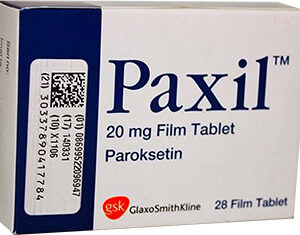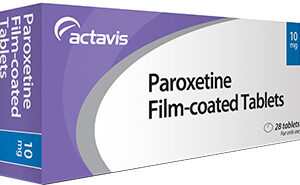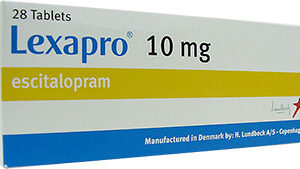Drug Name: Lithium
Lithium is a mood-stabilizing agent prescribed for the treatment and control of manic episodes associated with bipolar disorder. It has been a cornerstone in the management of bipolar disorder for many years, offering relief from the extreme mood swings associated with the condition.
Indications and Usage
Lithium is primarily indicated for the management of manic episodes in bipolar disorder, which can include symptoms such as heightened mood, increased energy, reduced need for sleep, racing thoughts, and sometimes aggressive or erratic behavior. It is also utilized for maintenance therapy to prevent or diminish the intensity of subsequent manic episodes in individuals with a history of bipolar disorder.
Dosage and Administration
The administration of lithium must be tailored to the individual patient’s needs. It generally starts at a lower dose that is increased slowly until the desired effect is reached. Regular monitoring of serum lithium concentrations is necessary to assure optimal dosing while avoiding toxicity. Physicians will often seek to maintain a specific therapeutic range, typically between 0.6 and 1.2 mEq/L. Dosage adjustments are made based on serum levels and clinical response.
Contraindications
Lithium should not be used in patients with significant renal or cardiovascular disease, severe dehydration or sodium depletion, or in individuals who are hypersensitive to lithium. Patients with a known history of severe thyroid disorder should also avoid lithium unless under strict medical supervision due to its potential impact on thyroid function.
Warnings and Precautions
Lithium treatment demands caution due to potential side effects. Adequate renal function is required to clear the drug from the body, and regular kidney function tests are recommended. Lithium can also impact the thyroid gland, potentially causing hypothyroidism. It is advised that thyroid function is monitored during lithium therapy. Additionally, lithium may unmask Brugada Syndrome; those planning to be treated with lithium who have suspected Brugada Syndrome should be evaluated prior to initiation of treatment.
Adverse Reactions
Side effects from lithium therapy can vary from mild to severe. Common reactions include tremors, weight gain, nausea, and increased thirst and urination. Less commonly, more severe effects such as cardiac and thyroid disruptions, confusion, seizures, and lithium toxicity can occur. Symptoms of toxicity include severe nausea and vomiting, severe trembling, and confusion, which necessitate immediate medical attention.
Drug Interactions
Lithium’s effects can be influenced by other drugs. Non-steroidal anti-inflammatory agents, diuretics, angiotensin-converting enzyme inhibitors, and angiotensin receptor blockers can increase lithium levels, leading to toxicity. It should not be used concurrently with medications having a narrow therapeutic index or those that could impact kidney function or electrolyte balance adversely.
Use in Specific Populations
Caution is advised when administering lithium to pregnant women as it can impact fetal development, leading to an increased risk of congenital malformations. Nursing mothers should also avoid lithium, as it is secreted in breast milk and can affect the nursing infant. For pediatric and geriatric populations, lower dosages or altered dosing frequencies may be necessary based on renal function and overall health status.
Overdosage
In the event of an overdosage, lithium can be life-threatening. Immediate steps must be taken to address the toxicity, including interruption of lithium administration, induction of emesis, or gastric lavage, and the institution of adequate hydration. Hemodialysis may be required in severe cases to rapidly reduce serum lithium levels.
Clinical Pharmacology
Lithium’s primary action in manic-depressive illness is not fully understood. It does not suppress normal emotions nor does it affect the vascular or respiratory systems directly. Its ability to maintain mood stability indicates effects on the central nervous system synaptic cleft, possibly by influencing multiple neurotransmitters or neuronal plasticity.
Mechanism of Action
The precise mechanism through which lithium exerts its mood-stabilizing effect is not definitively known. It is hypothesized to work by modulating neurotransmitter release and affecting second messenger systems within neurons, thus stabilizing neuron excitability and modulating mood.
Pharmacokinetics
After oral administration, lithium is rapidly absorbed, with peak concentrations occurring within 0.25 to 3 hours. It is not bound by serum proteins and is distributed throughout the body’s water compartments. Lithium is not metabolized and is entirely eliminated via the kidneys, with renal clearance closely tied to sodium chloride regulation.
Nonclinical Toxicology
In nonclinical studies, lithium has shown various effects, including impacts on reproduction at high doses. Chronic lithium treatment resulted in reversible as well as irreversible changes in various organs, particularly when given at higher dosages than those used therapeutically.
Clinical Studies
Clinical trials of lithium have demonstrated its efficacy in reducing the frequency and intensity of manic episodes and in the maintenance treatment of bipolar disorder. Studies have established the importance of maintaining therapeutic serum levels to achieve the desired clinical effect while minimizing side effects.
How Supplied/Storage and Handling
Lithium is available in various forms, including capsules, tablets, and as a liquid. Products must be stored at room temperature, protected from moisture, and kept out of reach of children. Lithium is sensitive to light degradation, and its products should be dispensed in light-resistant containers.
Patient Counseling Information
Patients should be counseled on the importance of adherence to prescribed dosages, attendance at follow-up appointments for serum level monitoring, and the need for timely communication of any adverse effects with their healthcare provider. Additionally, they should be informed about the signs of lithium toxicity and instructed to seek immediate medical assistance if they suspect they are experiencing toxicity symptoms.
Safety Considerations
When prescribing lithium, consider potential safety concerns such as renal function, hydration status, sodium intake, potential for interactions with other medications or substances, and any pre-existing conditions that may be exacerbated by lithium therapy.
Frequently Asked Questions (FAQs)
Q: Can lithium cause weight gain?
A: Yes, weight gain is a common side effect of lithium therapy.
Q: How often should I have my lithium levels checked?
A: Lithium levels are typically checked 5 to 7 days after starting treatment or after a dosage change, and every few months once stable levels are established.
Q: What should I do if I miss a dose of lithium?
A: If it is close to the time for your next dose, skip the missed dose and continue with your regular schedule. Do not double up on doses. If it is not near the time of your next dose, take the missed dose as soon as you remember. Always consult with your healthcare provider if you are unsure.
Q: Can I drink alcohol while taking lithium?
A: Alcohol can affect the body’s ability to manage lithium and can contribute to dehydration, potentially increasing the risk of lithium toxicity. It is generally advised to avoid or limit alcohol consumption while taking lithium.





Reviews
There are no reviews yet.